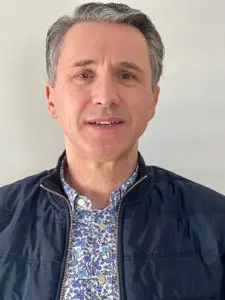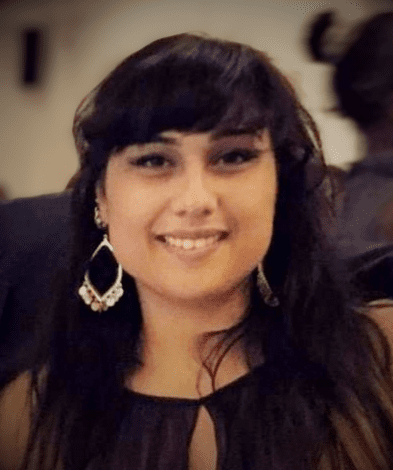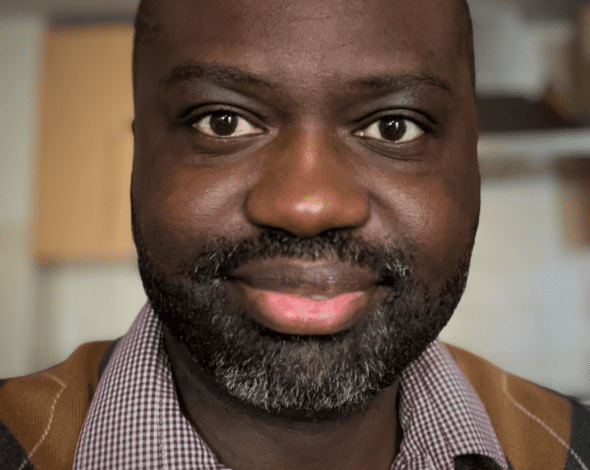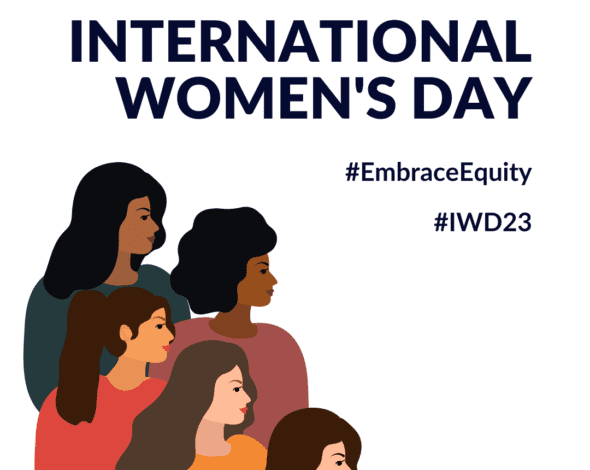Miles France’s health and social care career began in 1984. In 1987, he moved into mental healthcare, qualifying as a social worker in 1994, an approved social worker in 1998 and an approved clinician in 2013. Today, Miles is Devon Partnership NHS Trust’s Strategic Lead: Multi-Professional Approved Clinicians. Here, he reflects on social work’s challenges, aspirations, and the profession’s meaning for him.
Miles, please tell us what social work means to you.
First and foremost it’s about making a real and lasting difference in people’s lives. It’s also about valuing people’s personal experiences; in the earliest stages of my career I was hospitalised following a road traffic accident and I noticed how people talked at me rather than working with and alongside me, made decisions without my voice. It cemented for me how important it is that people are listened to, their personal experience valued, and their perspective heard, even if you don’t agree, and that this occurs without countertransference.
The approved clinician role is an opportunity for social workers to demonstrate they are able to take on the roles and responsibilities that were previously the domain of the medical professions; social workers can use their skills in systemic practice, relationship-building, community and interagency working, mental capacity, communication and engagement, as well as get involved in the strategic side as well.
 Please share your reflections on the last year.
Please share your reflections on the last year.
Last year was an interesting challenge professionally. The approved clinician role is already fully understood within our Adult, Secure Services and Older People directorates. It’s exciting to be having forthcoming deployment discussions with learning disability colleagues, towards cementing a joint nursing and social work-led service. We’re also really pleased to have a mix of approved clinician trainees from nursing and social work, as well as a psychologist.
It’s been a busy year strategically too, we’ve worked with Medical Workforce and Medical Staffing to review and agree senior, middle and junior clinical roles and functions. The approved clinician role involves consultant-level responsibilities, so it is important to develop clear career pathways which underpin this. We are delighted to have undertaken work towards redesigning services with the explicit remit to employ and train more approved clinicians, underpinned with governance to support professional development. During the first year of their training, trainee approved clinicians have weekly line management / clinical supervision, monthly action learning sets and monthly group mentoring. This work has been adopted by other areas too, so we have this shared knowledge, understanding and recognition of value of joint developments across the South West.
What’s next for social work?
I feel this is a really exciting time for us; we are really keen to encourage more frontline social workers to become advanced practitioners or approved clinicians. I expect we will look to support people in other ways too; social workers would be ideally placed to become the responsible clinicians for people on community treatment orders, for example.
For me personally, I feel I have achieved all the professional goals I set out to achieve; what’s important to me now is empowering social workers and other professional groups to feel they can take on more responsibility. Part of this work for me will also involve looking at professional development, talent mapping across service lines, and supporting social workers in the process.
Please share your thoughts on this year’s World Social Work Day’s theme: ‘Co-building a New Eco Social World: Leaving No-One Behind.’
It’s imperative that we offer a model of care that puts the person’s voice at the centre. We should be working alongside patients, their carers, support networks and communities, and making sure the person’s agenda, needs, wants and views are of primary importance in the process. It’s important that we acknowledge that we are often working with people who have sustained substantial trauma and so we should work in a trauma-informed way. We should build alliances that respect people’s dignity and be prepared to subtly challenge possible forces that diminish the person’s voice. We should be willing to provide psychoeducation, empowering the person to understand the dots that need to be joined, and do this in a spirit of reciprocity; there is a clear expectation of personal responsibility.
It’s also about valuing the individual team members’ viewpoints, empowering colleagues to develop creative care packages, manage risk and complexity, facilitate community involvement and a nuanced pace of change. It’s also about not being wedded to our hypotheses, instead listening and being continually open to making changes in a safe, sound and supportive manner.
Thank you Miles for sharing your thoughts with us.
Follow Miles on Twitter here.








